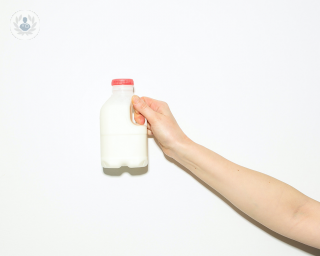Deficiencia de vitamina D
What is vitamin D deficiency?
Vitamin D deficiency is when the body is lacking vitamin D, which is essential for strong bones and teeth. It’s estimated that one billion people worldwide suffer from low levels of vitamin D.
Vitamin D is produced by the body when our skin is exposed to sunlight and it can be found naturally in some foods like fish liver oil, egg yolks and fortified dairy and cereals. Those who don’t get enough sun, suffer from milk allergies or follow a vegan diet are more at risk of a deficiency.
What are the symptoms?
Most people are unaware that they lack vitamin D as symptoms can be quite subtle. Here are some common signs:
- Getting sick often: vitamin D helps your immune system to fight off viruses and illness, so if you are often sick, a lack of vitamin D could be a contributing factor
- Fatigue and tiredness
- Bone and back pain: particularly lower back pain
- Bone loss: vitamin D plays a crucial role in Calcium absorption, which is essential for strong bones. Low bone mineral density has been linked to low levels of vitamin D
- Rickets: a disease that leads to soft bones and bone deformities
- Muscle weakness
- Depression
- Impaired healing of wounds
- Hair loss: low levels of vitamin D have been linked to alopecia areata
Low levels of vitamin D can pose many health risks such as:
- Increased risk of cardiovascular disease
- Cognitive impairment in older adults
- Asthma in children
- Cancer
Research also suggests that vitamin D plays a vital role in the prevention and treatment of type 1 and type 2 diabetes, high blood pressure and multiple sclerosis.
How is vitamin D deficiency diagnosed?
The most accurate way to measure how much vitamin D is in your body is with the 25-hydroxy vitamin D blood test. A level of fewer than 20 nanograms/ml is indicative of low levels of vitamin D.
What causes vitamin D deficiency?
Vitamin D deficiency can occur for a number of reasons, including:
- Not getting enough sunlight: your body makes vitamin D when it’s exposed to sunlight. People living in northern countries or who wear long clothes for religious, cultural or occupational reasons may be at risk.
- A lack of vitamin D in your diet: this is likely if you follow a vegan diet that’s dairy-free, as most natural sources of vitamin D are found in animal-based products like fish, egg yolks and fortified milk.
- Having dark skin: the skin’s pigment melanin reduces the skin’s ability to make vitamin D in response to sunlight.
- Being elderly: as people age, their kidneys are less able to convert vitamin D into its active form.
- Problems in the digestive system: if you have Crohn’s disease, cystic fibrosis or celiac disease, the ability of your small intestines to absorb vitamin can be affected.
- Being overweight or obese.
How is it treated?
Treatment for vitamin D deficiency involves getting more vitamin D through diet and supplements. The recommended daily allowance for anyone aged between one and 70 is 600 IU and 800 IU for anyone over the age of 70.
How can it be prevented?
You can lower your risk of vitamin D deficiency by:
- Following a diet with foods rich in vitamin D
- Spending more time outdoors in direct sunlight
- Supplementing with vitamin D







